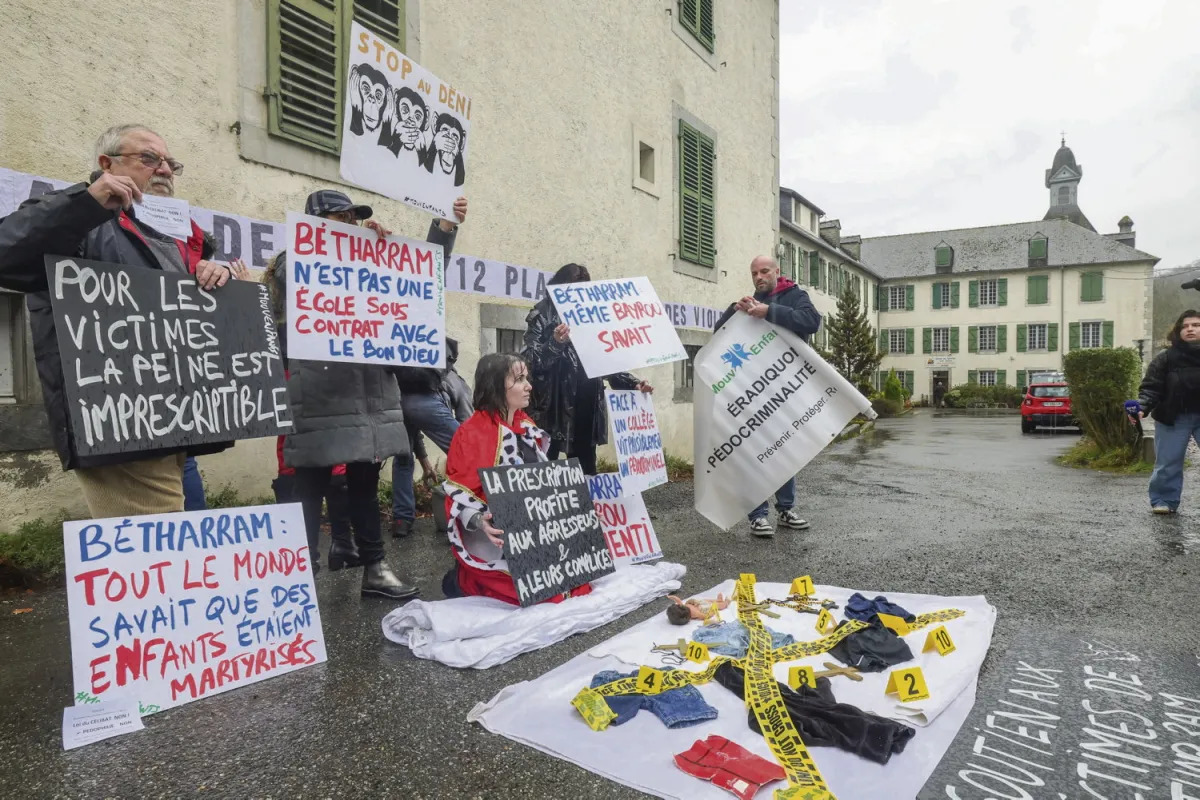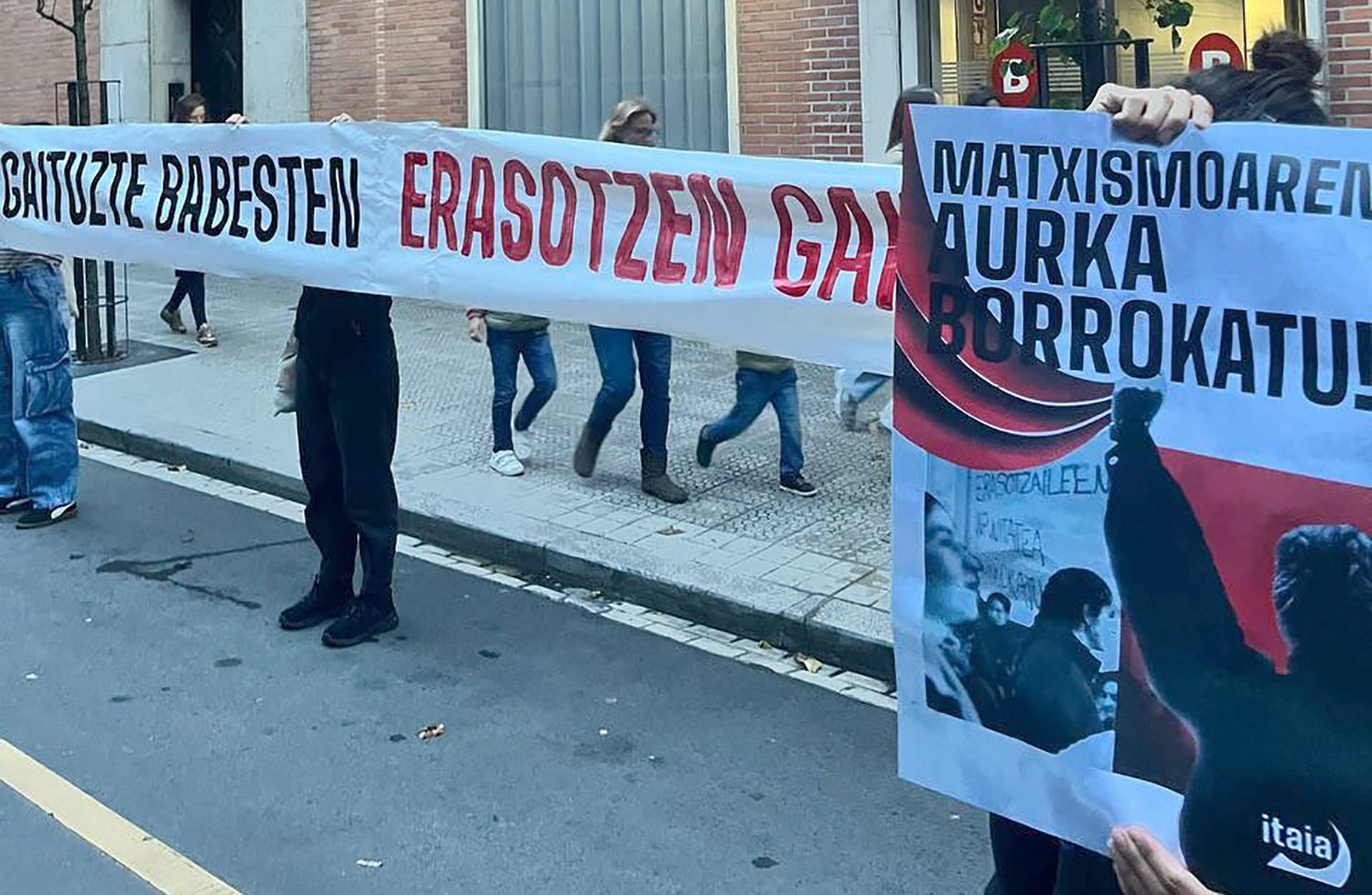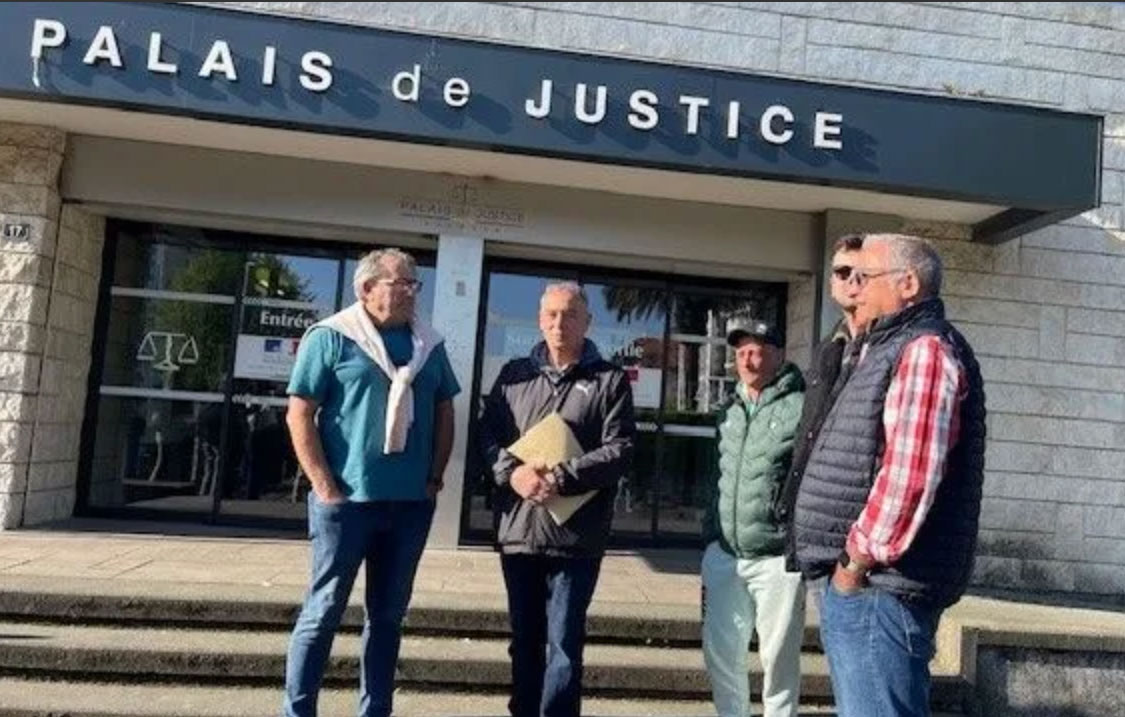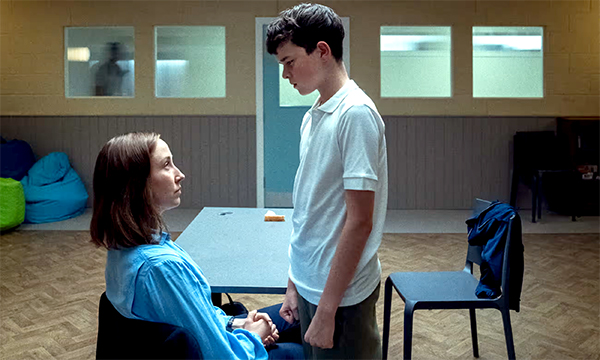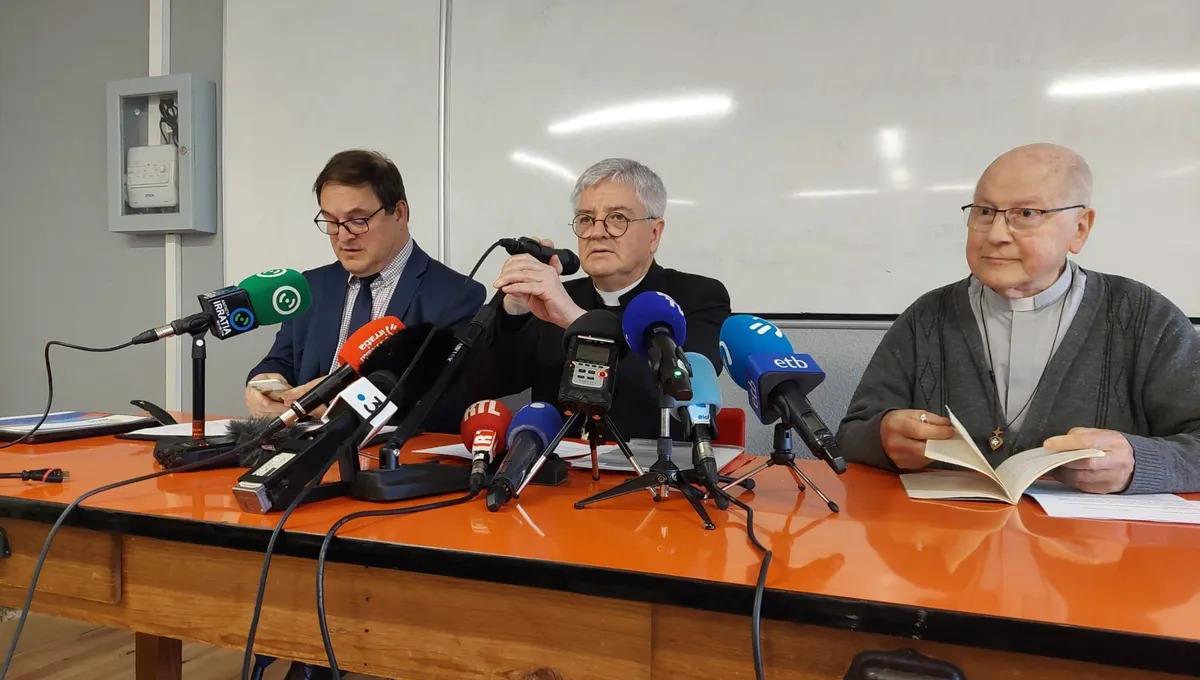"We live in a tremendously machist society, the diagnoses and suggestions of the experts, without realizing it, are machistas."
- Lourdes Relloso (Burgos, 1970) is an expert in clinical psychology and sexology and director of the Bidane de Llodio Institute. At the end of 2019, he published the book “Escape from Mistreatment!” in which he analyzed the toxic relationships between people. In 2010 he published the essay “Love, fear and other paradoxes of our time.”

What is “Escape from bad treatment!”?
First of all, I want to say that the initial title wasn't that, I intended to call it "I don't get any more, I'm afraid." But at the entrance he spoke of the strength of the words; there he criticized not to write separately the word “maltreatment”, that is, “maltreatment”.
A couple of editors and a journalist told me I had a mistake, they read the book above and told me I put it on several occasions by distributing “mistreatment.”
After consulting with RAE if it was a mistake, I decided to change the title. I was told that it would be acceptable from the RAE if it were used as an antonym for good treatment. And that's why I called it, "Escape from bad treatment!"
When we use the word “mistreatment,” writing it all at once, relationships between couples, where there are physical mistreatment, are at the forefront of everyone. But “mistreatment” should be used, at the same time, when there is repetitive and persistent mistreatment, even in hierarchical relationships.
This not only happens in relationships between couples, but in all kinds of relationships. Children can treat you badly, a friend, a boss...
They judge you, they criticize you, they despise you, they give you advice about your life and you have not asked for it, they give you without asking for your opinion, etc.
I named the book this way because I saw a conceptual mistake with the word “mistreatment.” People think that if you're not beaten, you're not being treated badly. If you don't know what ill-treatment is, of course, you can't defend yourself.
What advice does it give to help identify these toxic people?
I propose to think of the eight-point star, because those people who abuse not only touch or insult, but they despise, demand, judge, criticize, ridicule... Your ways of communicating with you are always hierarchical.
When I give my opinion to someone, I treat myself as more than he should do: “This shouldn’t do, I should do the other, this I don’t like.”
Suddenly, that person feels like he's on a test, and I'm the examiner. In the book, I'm talking about that communication.
There is a type of communication that is called schizophrenic communication, as the person who mistreates with only the word can generate discomfort.
“If you tell a person who is in a toxic relationship that it’s so easy to give up, at least you won’t feel more distorted.”
In this kind of communication, I will always be despising the other person in such a secretive way that I will not leave him the possibility of defending it. When I tell you that you don't like to do that, I'll use it against you.
For example, think I joke inadvertently: “You’re getting too fat.” And he'll tell me he doesn't like to make those jokes. So I tell him that everything takes it wrong and you can't tell him anything. That hurts the other person and makes him think that's a problem. The doubt lies behind him.
The book talks about the forms of communication that people have with us and that harm us to self-esteem. It's written in many books that when you have a toxic relationship with someone, with a friend or with a partner, it's because you have low self-esteem.
I try to make you understand that that's a lie. When you have such a relationship, relationships are gradually harmful to your self-esteem. Therefore, one will not have a weakness a priori, but this type of relationship will produce a person’s wear and tear, and there will come a time when all will be doubted.
It can be difficult to identify a toxic relationship. What is the process like until you realize it? What does it feel like?
What happens most often is that the affected person feels that he or she is not right, that he or she is never enough. Many toxic people often demand the role of the victim, through reproach: “Don’t remember me, don’t worry about me, don’t call me.” They use reproach.
The injured begins to think that it will never be enough, no matter what he does, that he will always do wrong. At one point he sees that he can't do more, that he can't hold any more.
It's like hitting a fence continuously. It is almost always suffering that makes the affected person see this situation as unsustainable.
Despite trying to keep other people happy and treating well, it never does. It's like an illusion that ends in despair.
In the end, suffering is what makes him say that he can no more, that we are talking about a person who hurts us.
What's the difference between a relationship between a toxic partner and a relationship of friends?
The reality is that there is not much difference, but the greater the intimacy, the greater the intensity of the mistreatment.
It's easier for the couple to be more critical, more humiliated than a friend. Why? In most cases, when they feel that the other person can't get out of the relationship because it's much worse treated by toxic people.
When I feel very secure, it's easier to treat it worse. Unfortunately, we feel safer in a relationship of partnership, where we think the other side needs us more than in a friendship relationship.
It can be said that the person who feels safer is treated worse. It's like an official. A person who can stay on the street at any time will always intend to do a fine job, but, unfortunately, the person who thinks that in any case he will keep the job, can do a worse job.
In the case of toxic relationships, it is common for people in the environment to advise the affected person. What would you tell them as a professional?
Good question. In most cases, the advice we give is full of good intentions, but it comes from ignorance of how these kinds of relationships work.
You tell someone to break the relationship to get it out of there; it's like telling an alcoholic that he doesn't drink. The baby may know that he or she is hurting him or her, but leaving him or her is not that easy.
When you tell someone to get out of there, it's easy to think that that person has little skill or little intelligence, because they can't take it forward.
It's very difficult to carry it forward, it's not that simple, it's like leaving an addiction. Many times the person knows that what we tell him is true, but every time we tell him we make him feel smaller, as if he were incapable.
This does not strengthen their self-esteem and they gradually feel smaller. That “getting out of there” makes you feel smaller.
“Many toxic people often demand it from the role of the victim, demand it with reproach.”
What “talks to that person, to see if he realizes and changes” fills him with hope; but he has tried it many times and, of course, has had no effect.
Sometimes, advice is given that makes them try again and suffer a failure again. Those who encourage you to try, make you hit a fence and those who encourage you to go feel smaller.
In these cases, the most effective, or what can help the most, is to help that person: “I understand you’re suffering. I know you're having a bad time, and I understand that it's not easy to leave someone when you're hoping to have a good relationship."
If you tell him that it's not so easy and you collaborate in suffering, at least, they won't make you feel more ineffective.
In 2010 he published the book “Love, fear and other paradoxes of our time.” When it comes to writing this second book, what differences have you noticed?
They have nothing to do with it. The first book was an essay, a critique of a society that sells its emotional independence.
Hence, the relationship that is being fostered between machismo and maltreatment relationships. If we tell people that they should be independent, relationships are going to get worse and worse, that was the essence of the book.
This is a practical book, similar to a therapy for people who suffer mistreatment. Both agree on why: We live in a society that tells us that we must be happy continuously, that we must be well treated among ourselves, that there must be no violence or ill-treatment. But this system in turn reinforces some of the values of mistreatment.
The fact is that we live in a terribly machista society, that the diagnoses are still machista and that the suggestions of the experts are, without realizing it, machistas. There are many things that are sold as feminism, but they're actually machismo.
Of course, there is more and more mistreatment, we say that there can be no, but the data tell us that there is more and more. We don't pose values. We need therapy because relationships are not very healthy.
What's the difference between your work as a professional psychologist and these written books?
When you're in the office, you do a much more individual job, and when you write a book, you have to resort to what all people have the same.
So, especially the last book, it's very practical and it looks like a therapy. All the people who have had a toxic relationship, whether it's with their mother, with their child or with a friend, say it's amazing, because they've lived it all.
In the consultation, on the contrary, we have to go to the concrete, the only thing. No one, like you, may have lived, but we have to take care of it.

Aspaldi pertsona oso zatar bat ezagutu nuen, urrun izatea komeni den pertsona horietako bat. Bere genero bereko pertsonengana zuzentzeko, gizonezkoengana, “bro” hitza erabili ohi zuen. Edozein zapaltzeko prest zegoen, bere helburuak lortzeko. Garai hartatik hitz... [+]
Prentsaurrekoa eskaini dute ostegun honetan Marc Aillet Baionako apezpikuak, elizbarrutiko hezkuntza katolikoko zuzendari Vincent Destaisek eta Betharramgo biktimen entzuteko egiturako partaideetarikoa den Laurent Bacho apaizak. Hitza hartzera zihoazela, momentua moztu die... [+]
Antifaxismoari buruz idatzi nahiko nuke, hori baita aurten mugimendu feministaren gaia. Alabaina, eskratxea egin diote Martxoaren 8ko bezperan euskal kazetari antifaxista eta profeminista bati.
Gizonak bere lehenengo liburua aurkeztu du Madrilen bi kazetari ospetsuk... [+]
11 adin txikikori sexu erasoak egiteagatik 85 urteko kartzela zigorra galdegin du Gipuzkoako fiskaltzak. Astelehenean hasi da epaiketa eta gutxienez martxoaren 21era arte luzatuko da.
MAITE: (biharko eguna antolatzen bere buruaren baitan) Jaiki, gosaldu, bazkaria prestatu, arropa garbitu, etxea garbitu, gizon hori jaiki, seme-alabak jaiki, hiru horien gosaria prestatu, haiek agurtu, erosketak egin, lanera joan, seme-alabak eskolatik jaso, merienda eman,... [+]
Matxismoa normalizatzen ari da, eskuin muturreko alderdien nahiz sare sozialetako pertsonaien eskutik, ideia matxistak zabaltzen eta egonkortzen ari baitira gizarte osoan. Egoera larria da, eta are larriagoa izan daiteke, ideia zein jarrera matxistei eta erreakzionarioei ateak... [+]










